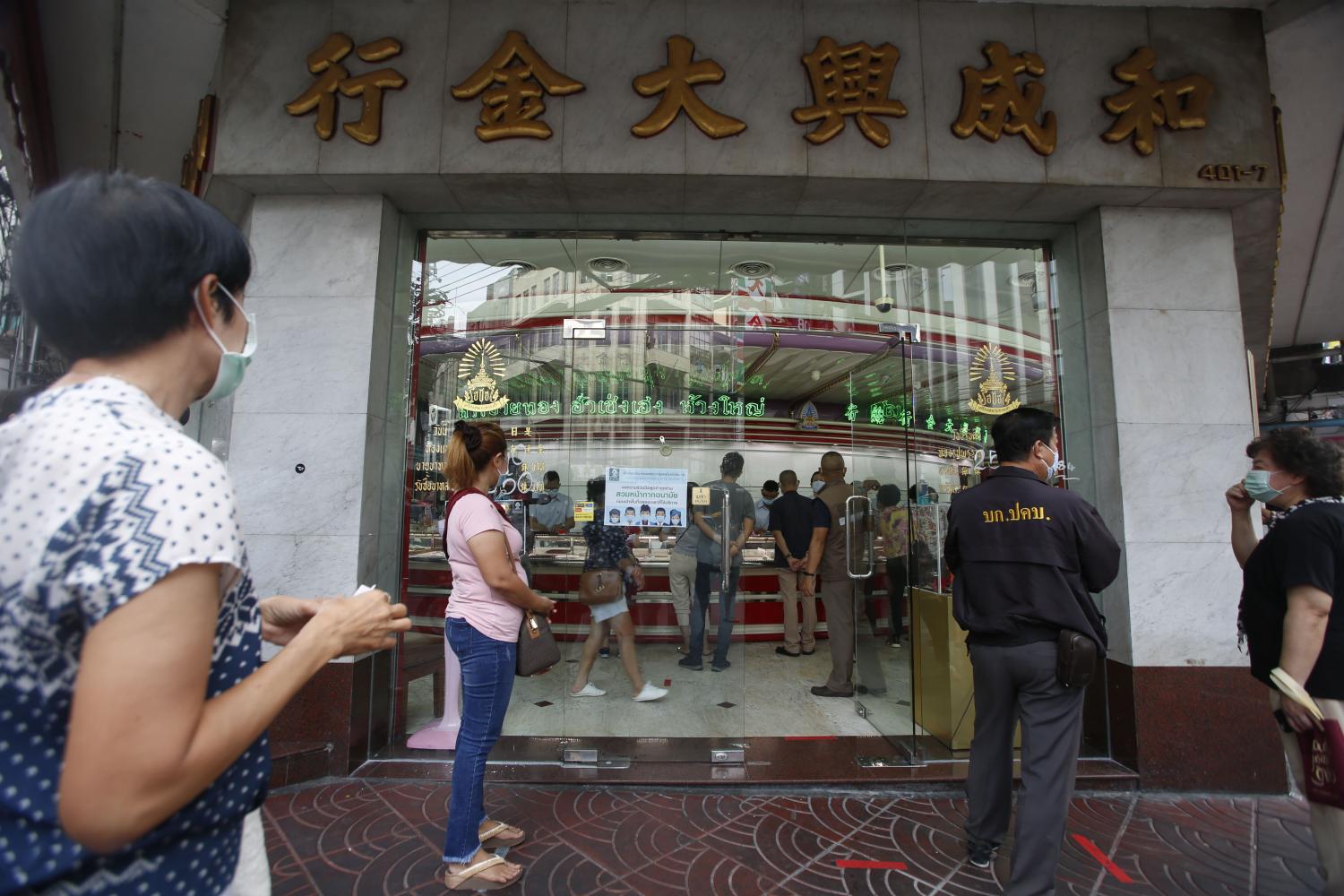
When Prime Minister Prayut Chan-o-cha announced during the government's Friday television programme that he would seek advice from top 20 Thai billionaires on how to overcome the economic crisis resulting from the coronavirus pandemic, the nation's jaw dropped.
The prime minister said he would send an open letter to those in the rich men's club this week. He will also talk to small- to medium-sized enterprises about their problems.
"I will ask them [the billionaires], who are senior citizens of this country, how they will collaborate with us, and how they can contribute more to helping Thailand," he said.
"I want to access the know-how, capacity and diverse expertise of the private sector. I also would like to hear their opinions about how the government can improve its efficiency," he said.
Clearly, by sending out those messages, the PM has admitted the government alone can't vanquish the coronavirus pandemic, or ensure the economy bounces back after the lockdown is lifted.
We still don't know who will get that letter but the current top 20 Thai billionaires, according to Forbes Magazine's 2020 ranking, include Dhanin Chearavanont, a senior chairman of one of the Thai agro-conglomerate Charoen Pokphand Group, Charoen Sirivadhanabhakdi, founder of Thai Beverage, and Tos Chirathivat, chief executive of Central Group. Duty-free giant King Power, Singha-beer producer Boon Rawd Brewery and top energy producer Gulf Energy are also on the list.
Collaboration across multi-sectors has proved successful for Taiwan and South Korea in controlling the pandemic, avoiding city shutdowns and the worst economic consequences of the shutdown. Both governments have worked with their public and private sectors closely -- especially medical and ICT companies -- making quick testing possible, while tracing risk population groups and treating those infected.
But Gen Prayut's call for collaboration from the Thai private sector is different. It has sown confusion at a time when the country is in need of clear direction from the top.
How can the prime minister not know about the situation on the ground when we hear daily the stories of businesses being shut down, worker lay-offs, hunger and suicide resulting from the government's lockdown measures?
Moreover, how can he not know which parts of his government lack efficiency? If he does not have a clue, I would humbly point him to the many people who have missed out on the state relief programme since April 8.
What we see is a leadership problem, and to add the salt to the wound, the PM turns to the private sector for help!
The prime minister has yet to reveal details of the assistance he will solicit from those billionaires. According to news reports, he may ask them to keep their workers, or even hire more, to help keep workers earning a wage. Last week, Mr Dhanin asked the government to do more to help ailing businesses so they do not have to fire their workers.
Another request for the rich, as reported by the media, is that they reduce the price of their commodities and services to keep the economy going. He may ask for suggestions on how to boost and reform the economy after the crisis ends.
But some critics are sceptical that the PM's appeal might lead to bigger "give and take" deals. Some of those business empires have big stakes in state projects and that does not happen by coincidence.
For example, a Charoen Pokphand Group-led consortium won the 2018 bid to build the 224-billion-baht high-speed rail project linking Don Mueang and Suvarnabhumi airports with Rayong's U-Tapao airport.
King Power won the bid last year to run duty-free shops for 10 years at three regional airports and Suvarnabhumi Airport, amid criticism about the long concession period which bars other companies from competing in the duty-free business.
There are grounds to be concerned that no one will pay heed to the voices of the poor and informal workers, the vulnerable, the hard-hit.
While Covid-19 has caused not only economic hardship, it has also revealed hidden social problems for which a holistic approach is required if we are to find a solution. Gen Prayut needs to keep his eyes and ears open, reaching out to civil society organisations and the representatives of the vulnerable as well.
He also needs to change the government's crisis response and amend various national policies. In my opinion, there are at least three areas that he should review.
First, the government's slow response at the outset of the pandemic.
If the government had acted sooner back in January, we would have been able to curb the disease and avoided city shutdowns.
At the same time, we should be aware of the insufficient safety net for many trapped in the crisis.
While we can boast of universal healthcare coverage -- which advances our medical capacity to curb the spread of the coronavirus -- the safety net is not adequate in other sectors beyond health.
Second, as many reports have pointed out, the state has made serious errors in identifying those hit by the crisis, with the result that they missed out on state help.
Last, Gen Prayut's SOS message seems to conjure up images of what we know to be cronyism in the state and business sector.
Will he provide more incentives to them in return for their help? We have every reason to wonder if some of these rich men might have played a role in scrapping the wealth tax or discouraging income redistribution, which could have helped reduce inequality in this country.
Millions of people have been left vulnerable during the pandemic by social inequalities which the government must now address.
So this week we will get a clearer picture of what our prime minister wants and what he is likely to get. We have to keep our fingers crossed that any deals from the meeting will not come at our expense.
Paritta Wangkiat is a Bangkok Post columnist.
